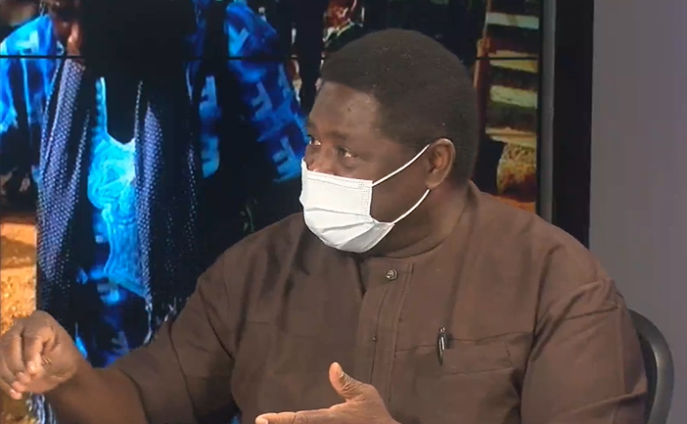Former flagbearer of the Convention People's Party (CPP) and now founder of National Interest Movement says the current democratic system has encouraged the duopoly in Ghana's elections, thereby shutting the political space.
Dr Foster Abu Sakara explained that under the current constitution, whenever there is a runoff during elections, there is revoting instead of another political party joining forces with the party with the most votes.
This, he said, has prevented such minor political parties from being recognised and growing their support base.
"Since we have been voting, we have had to go a second round at least two or three times. In those two or three times, if the constitution allowed for the formation of coalition, then another party would have come with its vote to form a coalition with whoever had the most votes and it would have been in government championing a particular cause for which it would be recognized and in time, its support base will grow. But we don't have that option. So we go and vote again until someone gets 50% plus one and then the political space shuts because the winner takes all.
"So it is the very practice of the democracy as we have it that has closed the political space," he told Evans Mensah on PM Express.
During the 2008 general elections, there was a runoff as both presidential candidates of the National Democratic Congress (NDC) and New Patriotic Party (NPP), Evans Atta-Mills and Nana Akufo-Addo respectively, were unable to cross the 50% plus one threshold.
After revoting, the late former President Atta-Mills carried the day.
In the 2012 general elections, a similar event occurred. John Mahama, representing the NDC and the NPP's Nana Akufo-Addo had less than 50% plus one vote. The NDC won the elections after a revote.
According to Dr Abu Sakara, although in the past there has been some sort of partnership, it has been on a personal rather than an institutional level.
"The point here is that it has to be an institutional collaboration and not a personal collaboration. We have even had occasions when some members have been made ministers but that was as individuals. How did it affect the standing of their party? So that is what we have to correct."
"This process is focused too much on individuals and positions and not on the institution of the political parties themselves. So if you create opportunity for the political parties to have formal partnership and collation, then they can be in government, prosecute agendas that will indeed let the electorate know that I didn't spoil my vote.
"This is how other democracies have broadened and been more inclusive," he added.
He cited Europe where he stated that smaller groups have been punching their way up because of collating with major parties.
One of the objectives of the National Interest Movement is to rally support for an independent alternative to Ghana's electoral duopoly
They are also demanding the amendment of several articles including Articles 86, 87, 178, 179, and 180 of the 1992 constitution.
Latest Stories
-
Paris 2024: Opening ceremony showcases grandiose celebration of French culture and diversity
3 hours -
How decline of Indian vultures led to 500,000 human deaths
4 hours -
Paris 2024: Ghana rocks ‘fabulous fugu’ at olympics opening ceremony
4 hours -
Trust Hospital faces financial strain with rising debt levels – Auditor-General’s report
4 hours -
Electrochem lease: Allocate portions of land to Songor people – Resident demand
5 hours -
82 widows receive financial aid from Chayil Foundation
5 hours -
The silent struggles: Female journalists grapple with Ghana’s high cost of living
5 hours -
BoG yet to make any payment to Service Ghana Auto Group
5 hours -
‘Crushed Young’: The Multimedia Group, JL Properties surprise accident victim’s family with fully-furnished apartment
6 hours -
Asante Kotoko needs structure that would outlive any administration – Opoku Nti
6 hours -
JoyNews exposé on Customs officials demanding bribes airs on July 29
6 hours -
JoyNews Impact Maker Awardee ships first consignment of honey from Kwahu Afram Plains
8 hours -
Joint committee under fire over report on salt mining lease granted Electrochem
8 hours -
Life Lounge with Edem Knight-Tay: Don’t be beaten the third time
8 hours -
Pro-NPP group launched to help ‘Break the 8’
8 hours

